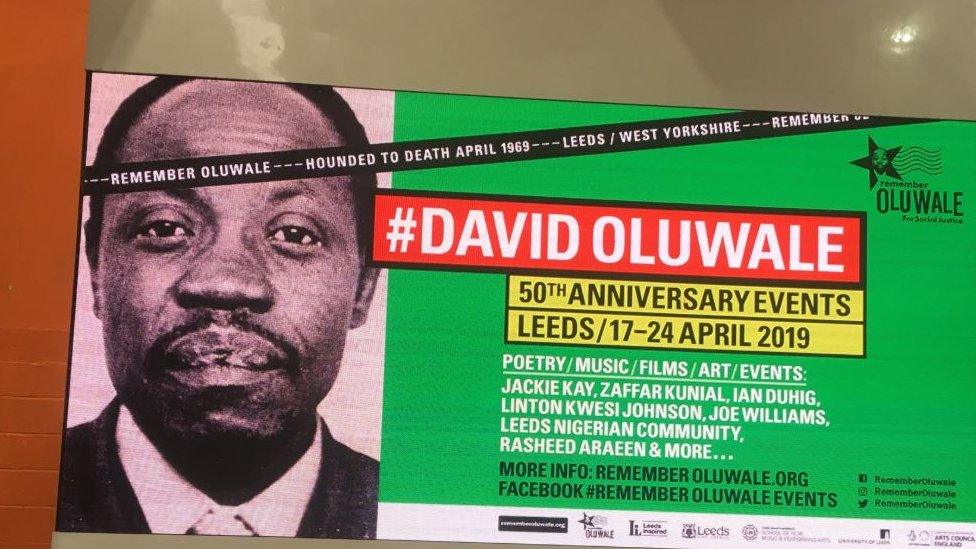David Oluwale: Leeds bridge remembering race harassment victim installed
- Published
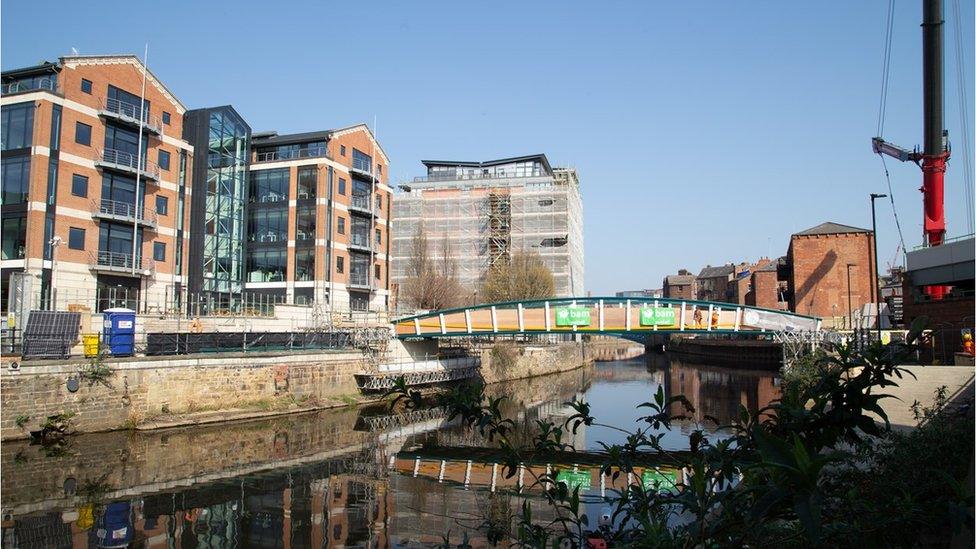
The David Oluwale Bridge connects Sovereign Street and Water Lane in Leeds
A footbridge dedicated to a man who drowned after being racially harassed by police over 50 years ago has been put in place across a river in Leeds.
The David Oluwale Bridge, which is 98ft (30m) long, was lowered over the River Aire by crane at the weekend.
Mr Oluwale, from Nigeria, was last seen fleeing police in April 1969 and he was later found drowned in the Aire.
The bridge was a "lasting reminder" of the importance of equality and inclusion, Leeds City Council said.
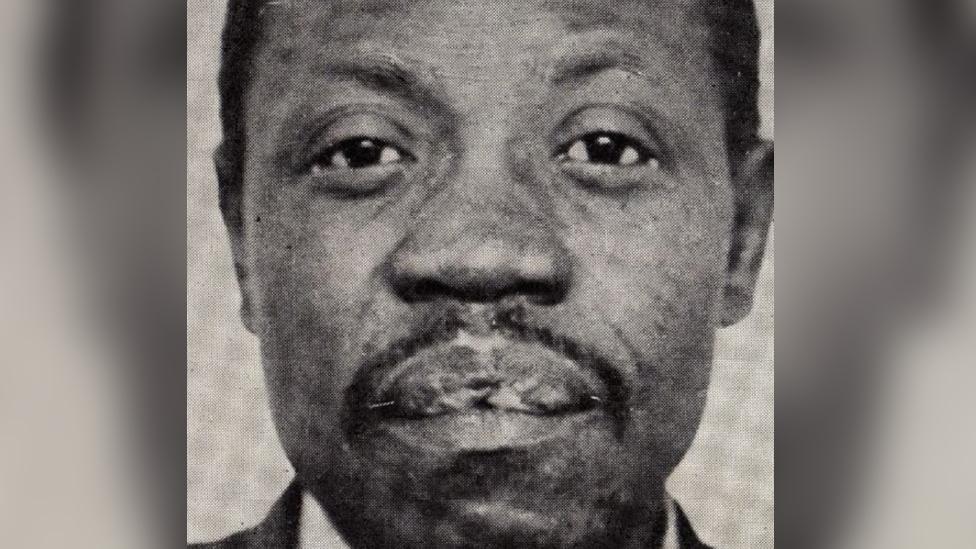
Mr Oluwale's death led to the first prosecution of British police for involvement in the death of a black person
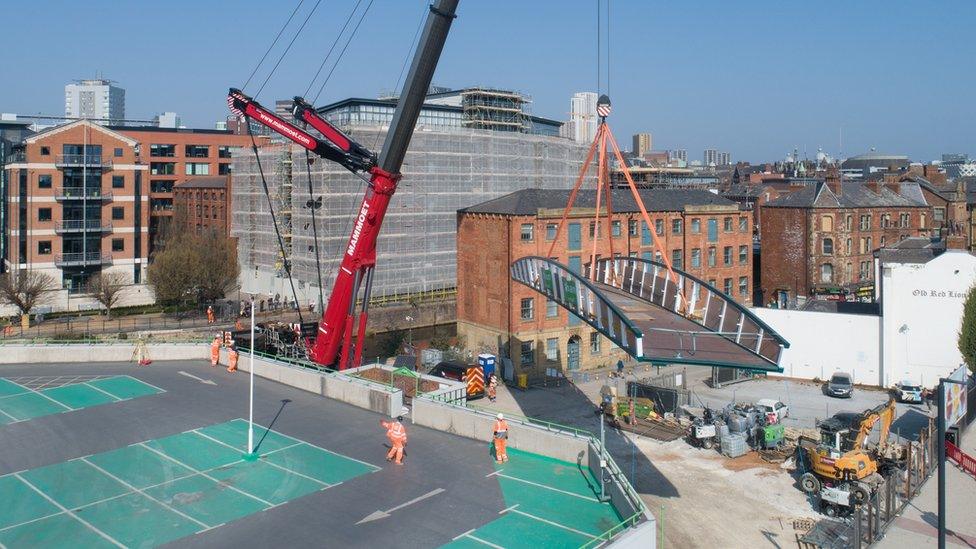
Contractors transported the bridge to the River Aire before carefully installing it with a crane
Helen Hayden, from Leeds City Council, said Mr Oluwale "died in the river in a racially-motivated incident which left a lasting imprint on the city".
She added that he was "tragically targeted because of his mental health, homelessness and race".
The bridge - part of the regeneration of Leeds' South Bank - was meant as a "lasting symbol of our shared commitment to diversity and inclusion in Leeds", Ms Hayden said.
Max Farrar, from the Remember Oluwale charity, said plans for a blue plaque and memorial sculpture garden in memory of Mr Oluwale also meant his story would never be forgotten.
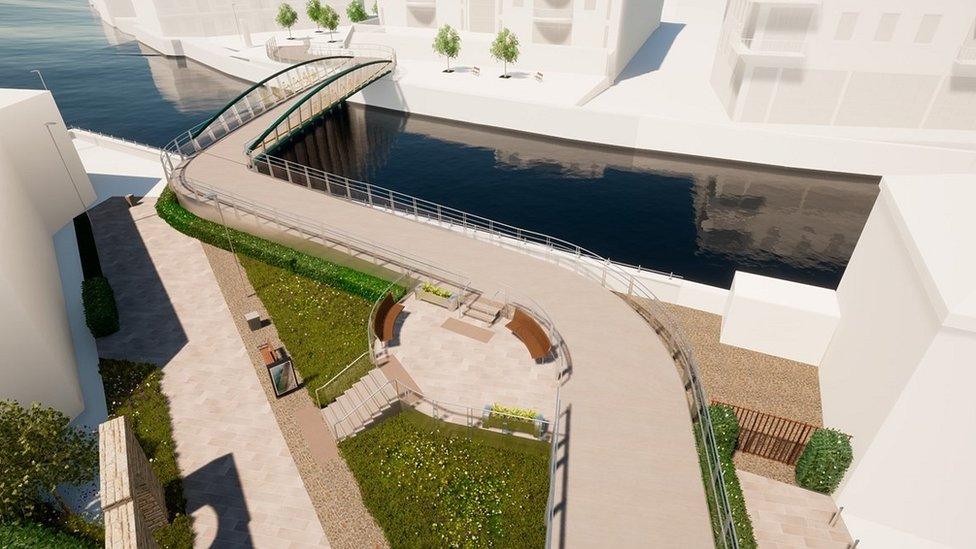
The David Oluwale Bridge was designed as a foot and cycle crossing to connect Sovereign Street to Water Lane
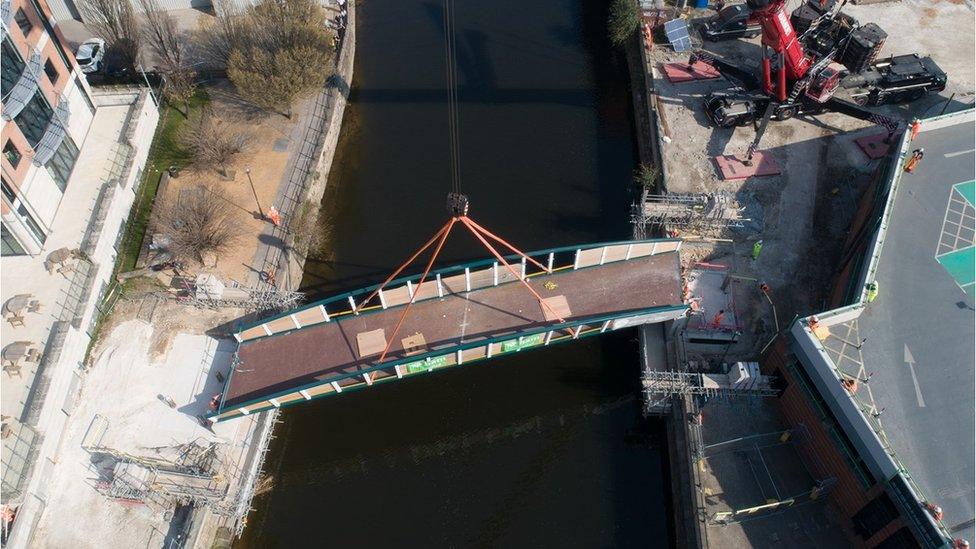
The bridge, fabricated in nearby Sherburn-in-Elmet, is expected to be opened to the public later this summer

Who was David Oluwale?
Born in Lagos in 1930, David Oluwale migrated from Nigeria in August 1949.
He hid on a cargo ship destined for Hull and was jailed for being a stowaway.
Upon release, Leeds became his home and he worked in industries helping rebuild the post-war city.
But after being re-incarcerated and labelled schizophrenic, David Oluwale spent his final two years homeless in Leeds city centre, routinely mentally and physically abused by police officers Insp Geoffrey Ellerker and Sgt Kenneth Kitching.
Mr Oluwale was chased by the officers towards the River Aire in the early hours of 18 April 1969 and his body was found in the water two weeks later.
The officers were later jailed for a series of assaults, but justice and civil rights campaigners said their trial presented a deliberately negative portrait of Mr Oluwale as a "social nuisance".

Follow BBC Yorkshire on Facebook, external, Twitter, external and Instagram, external. Send your story ideas to yorkslincs.news@bbc.co.uk, external.
Related topics
- Published27 January 2022

- Published19 April 2019
